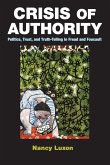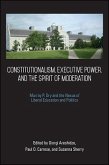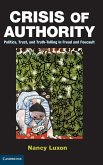When presidents or prime ministers make law by decree, are we witnessing the usurpation of legislative authority? The increased frequency of policy-making by decree, in older democracies as well as in the newer regimes of Latin America and the post-communist world, has generated concern that legislatures are being marginalized and thus that democratic institutions are not functioning. Professors Carey and Shugart suggest which elements of constitutional design should (and should not) foster reliance on decree authority. Individual chapters then bring the experiences of Argentina, Brazil, France, Italy, Peru, Russia, the United States, and Venezuela to bear on the theory. The book combines broadly comparative analysis with intensive case studies to provide a more thorough understanding of the scope of executive authority across countries.
Table of contents:
1. Calling out the tanks or filling out the forms? John M. Carey and Matthew Soberg Shugart; 2. When the president governs alone: the decretazo in Argentina 1989-1993 Delia Ferreira Rubio and Matteo Goretti; 3. Presidential decree authority in Russia, 1991-1995 Scott Parrish; 4. Presidential usurpation or congressional preference?: the evolution of executive decree authority in Peru Gregory Schmidt; 5. Presidential decree authority in Venezuela Brian F. Crisp; 6. Dancing without a lead: legislative decrees in Italy Vincent Della Sala and Amie Kreppel; 7. The pen is mightier than the congress: Presidential decree power in Brazil Timothy J. Power; 8. Executive decree authority in France John D. Huber; 9. In search of the administrative President: Presidential 'decree' powers and policy implementation in the United States Brian R. Sala; 10. Institutional design and executive decree John M. Carey and Matthew Soberg Shugart; Appendix; References.
Across political systems, executives increasingly take (or are given) the authority to act without concurrent legislative action. This book offers a theory of political institutions that predicts when executives should turn to decree and when legislatures should accept - or even prefer - this method of making policy.
This book offers a theory that predicts when executives should turn to decree and when legislatures should accept this method of policy-making.
Hinweis: Dieser Artikel kann nur an eine deutsche Lieferadresse ausgeliefert werden.
Table of contents:
1. Calling out the tanks or filling out the forms? John M. Carey and Matthew Soberg Shugart; 2. When the president governs alone: the decretazo in Argentina 1989-1993 Delia Ferreira Rubio and Matteo Goretti; 3. Presidential decree authority in Russia, 1991-1995 Scott Parrish; 4. Presidential usurpation or congressional preference?: the evolution of executive decree authority in Peru Gregory Schmidt; 5. Presidential decree authority in Venezuela Brian F. Crisp; 6. Dancing without a lead: legislative decrees in Italy Vincent Della Sala and Amie Kreppel; 7. The pen is mightier than the congress: Presidential decree power in Brazil Timothy J. Power; 8. Executive decree authority in France John D. Huber; 9. In search of the administrative President: Presidential 'decree' powers and policy implementation in the United States Brian R. Sala; 10. Institutional design and executive decree John M. Carey and Matthew Soberg Shugart; Appendix; References.
Across political systems, executives increasingly take (or are given) the authority to act without concurrent legislative action. This book offers a theory of political institutions that predicts when executives should turn to decree and when legislatures should accept - or even prefer - this method of making policy.
This book offers a theory that predicts when executives should turn to decree and when legislatures should accept this method of policy-making.
Hinweis: Dieser Artikel kann nur an eine deutsche Lieferadresse ausgeliefert werden.







